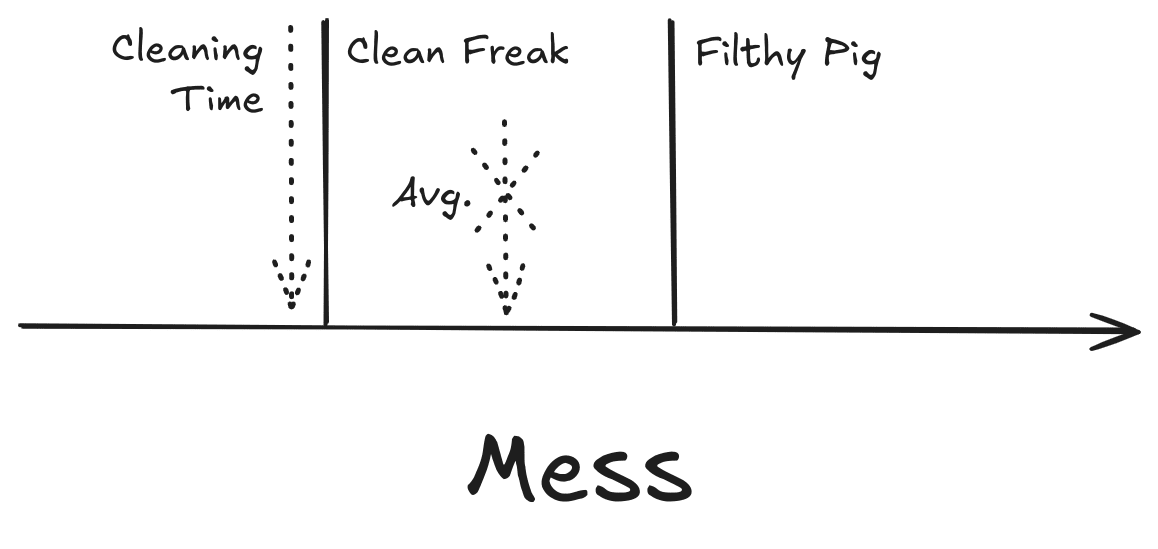Published on August 13, 2025 1:59 AM GMT
Perhaps you've had this experience before: you generally like living with your roommate, except when it comes to the mess they leave around. They seem content to wallow in their filth, so you feel like you always have to pick up after them to maintain a sane level of cleanliness. Because there are two of you, you have to do twice the work than if you were living alone.
Or perhaps you've had this experience before: you generally like living with your roommate, but they have far higher living standards than you would be content with. Your place hardly seems to get messy before they demand you pick up your filth. You don't want to make your roommate mad, so you do pick up a little more, but if feels like you're cleaning twice as often as you would be if you were living alone.
A mess is an example of a common bad. The two roommates could split up and find their own places, but they're probably generating more good by living together than if either one of them eats the extra costs. And there are extra costs:

They cannot just clean at the average of their preferred mess levels, because the 'clean freak' would freak out. Instead, the two most common ways of splitting the costs are either:
- The 'filthy pig' is apathetic towards the growing mess, and the 'clean freak' cleans twice as frequently. Notice how the 'filthy pig' cleans less often than if they were living alone, while the 'clean freak' cleans more often.The 'clean freak' convinces the 'filthy pig' to clean as often as they do. Notice how the 'filthy pig' cleans more often than if they were living alone, while the 'clean freak' cleans just as often.
Neither of these are fair. They should be using Shapley values. Suppose the cleanlier roommate would clean times as often as the messier roommate, were they living alone. We have
so, living together, the 'clean freak' should clean times for every times the messier roommate cleans. For example, if the cleanlier roommate would clean thrice as often on their own, they should be cleaning twice as much as their roommate.
Discuss

